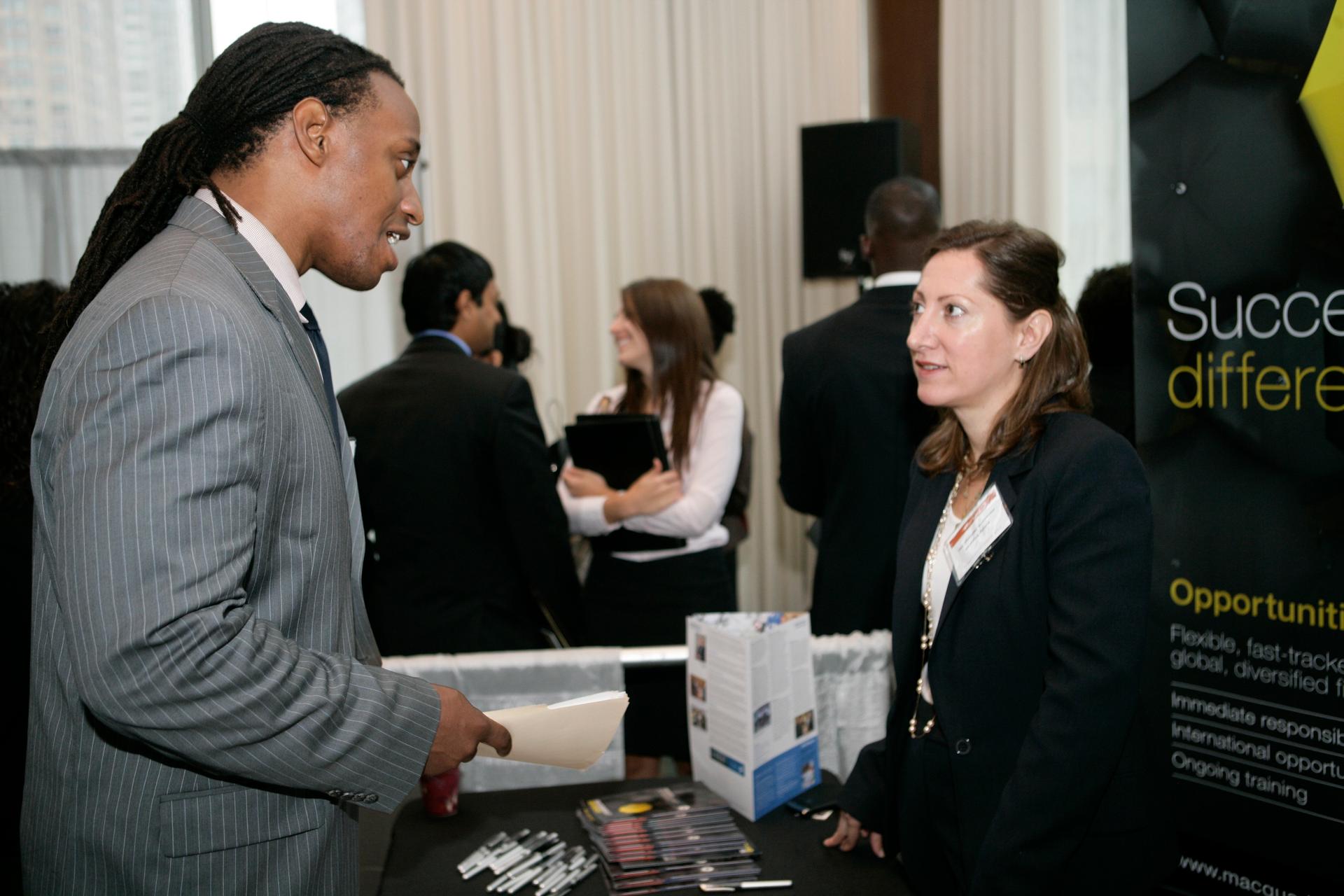How to Make a Job Fair Work for You
Published: Aug 01, 2016

The beginnings of many careers originated from job fairs, which is just one of the reasons why they are so daunting. It can get confusing as to what to bring, how to dress, and how to prioritize who to talk to. Navigating a job fair can be difficult, which is why we’ve got the step-by-step guide to ensure a successful job fair experience for you. Follow our steps to land your next job:
PREPARATION
Your Intention/ Your Objective:
The recruiter is in the process of being inundated by hundreds or respective job or internship seekers. The ones that are clear, prepared and concise stick out. That is what I mean by intention. Stand out with your clarity but be flexible on how you get there. Walk into the room with intention and with clear objectives.
Be ready with what are YOU looking for:
- Internship or job offer?
- When are you available?
- If it is an internship what time would the internship need to start/conclude to work with you schedule?
- Are you OK with relocating for the internship?
- Compensation requirements?
Be flexible but have a plan.
If that information rolls fluidly, you will be perceived as being on the ball. Remember, that recruiter is in the process of sorting out who is going on their short list while they are being bombarded by literally hundreds during the job fair, and many hundreds from job fairs at other campuses they recruit from.
Necessary Collateral:
Be prepared with collateral both for the job fair and your online presence. If you have not done so, have it reviewed by someone in the career center or an academic advisor. Items like:
- Your resume
- Online presence (that is searchable by a recruiter)
- Business cards: At minimum your name, email address and cell phone number. 500 will cost you all of $30. When you give one out to a professional their habitual reaction is to hand you theirs. This is invaluable and allows you to work the job fair with greater ease (versus copying down emails and getting the recruiters name spelled right on the floor of the fair).
Your Elevator Pitch:
This is a short statement of who you are (30 seconds to two minutes). It must also convey what you are looking for. The key objective is for the campus recruiter to be compelled to want more time with you.
Research:
The average campus job fair has 60-100 companies depending on the size of the school. The fairs in the spring are smaller than the ones in the fall. There will be companies you are somewhat familiar with and others you have no idea what they do. Therefore, research is critical to maximize the event. Even if you think you know what they do, research will open a superior vantage point.
- #1 Download a list of the companies who are attending and put them into a central list. Job Search Radar does this and has all the tracking information set up for you.
- #2 Know:
- What they do
- Why you are interested
- Two great questions for the campus recruiter. Don’t worry about the questions, once you do the research the questions will come.
Targeting:
With ~100 companies represented, you want to be as deliberate as possible while working the event. From your research, have a short list of must see companies. The fact that you are creating priorities will help you to make choices before the fair. You might connect with a company that you did not have initial interest in from ‘bumping into them’ at the job fair, but this process gives you more focus (read: Advantage).
List your:
- Top 3-5 companies you absolutely want to connect with
- Secondary 3-5 that you want to talk to
- Then you can ‘browse’ the rest if time is available
Readiness:
- Put the event on your calendar and arrive early so you can review your research before entering the room
- Go alone so you can completely focus on the event
- Have your collaterals ready
- Take the summary of your research in hand. It is OK to review your notes prior to walking into each booth. Just do your notes review out of sight of the potential recruiters.
- Dress professionally and conservatively (Suit is best that is dry cleaned, conservative hair and accents, no tattoos or piercings showing). You want to look like the type of person that that company would want to represent
In-General Advise:
- Take at least 8 hours to prepare. Don’t rush through preparation; this event can easily affect your life for the better.
- Create a plan that you are excited about. When you have your summary (again I suggest Job Search Radar) done, you will be very excited to ‘work’ the event.
- Walk into the job fair with:
- Intention
- Optimum
- And confidence
- Great confidence is derived from great preparation. And confidence shows (and shows very will indeed).
- Finally right NOW:
- Calendar the Job Fair or Fairs this semester (remember there are many, often by colleges and a university wide job fair)
- Calendar prep time. Start with a two to three hour getting started time.
A version of this post appeared on learnearnretire.com.
